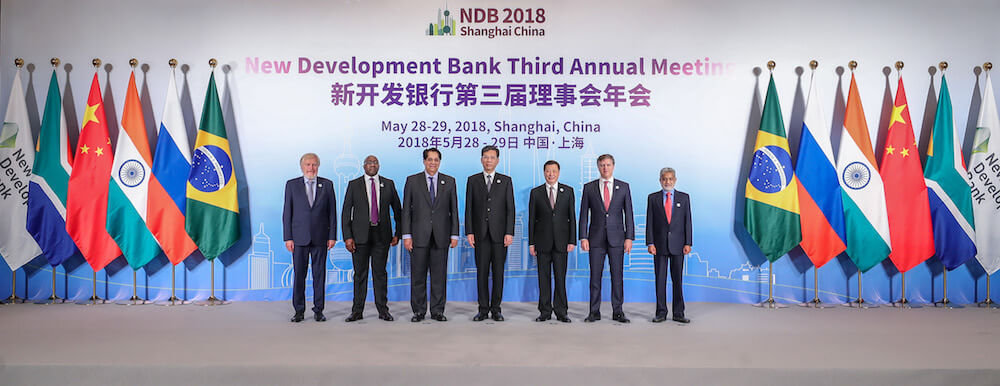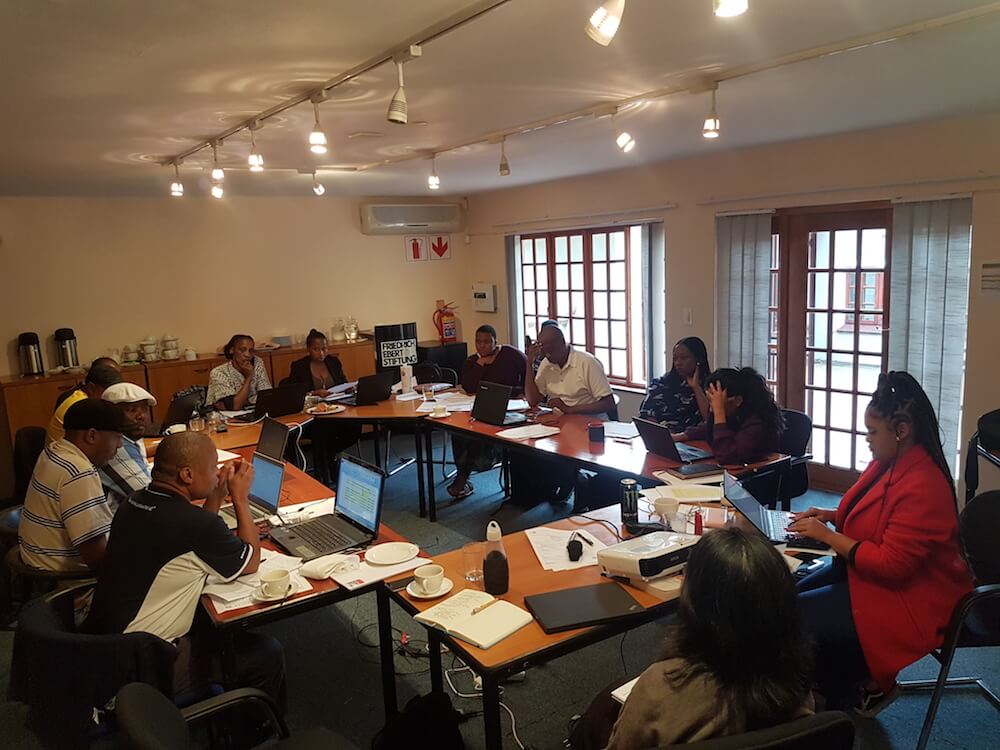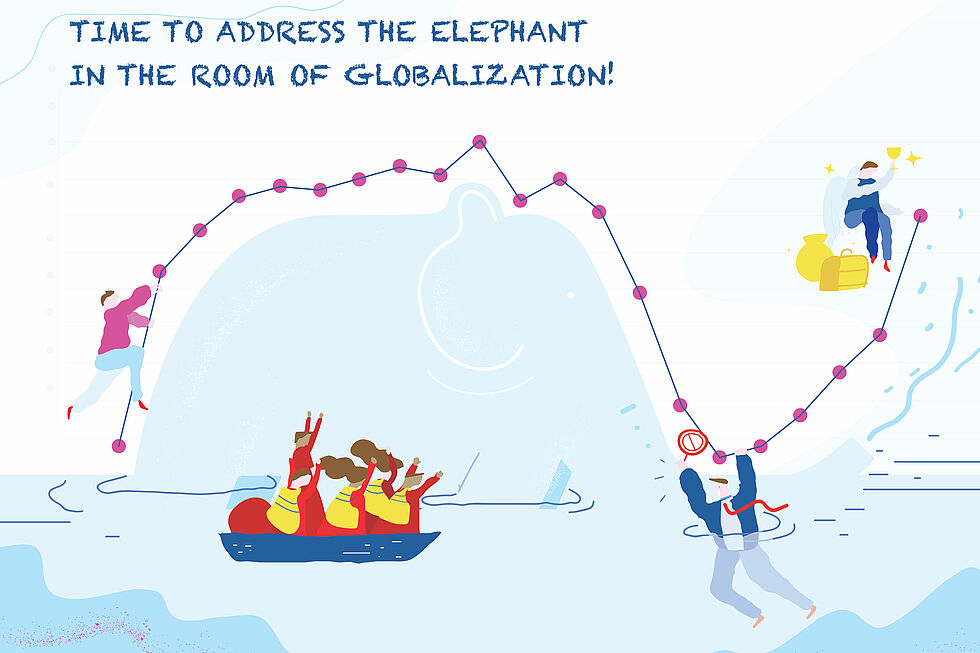Why the BRICS needs a greater civic involvement: Five things you need to know
In 2018 South Africa is hosting the Summit of the world's leading emerging economies—Brazil, Russia, India, China and South Africa. This year’s theme is "BRICS in Africa: Collaboration for Inclusive Growth and Shared Prosperity in the 4th Industrial Revolution".
A greater civic involvement is taking shape in the lead up to the summit. Civil society organizations and movements are coming together for a Civil BRICS meeting on 25-27 June in Johannesburg to establish their positions on the summit outcomes they will push for. Here are five things you should know about the Civil BRICS and in favour of greater civic involvement in the BRICS summits.
1. With Civil BRICS the legacy of a strong global South agency is a likely reality.
Some view the significance of BRICS in narrow economic terms—expanding the consumer base for global goods. Others regard the group with fear of an economic upsurge without corresponding democratic credentials, and anxiety that they help to maintain the status quo in return for small and largely insignificant concessions.
But there is a strong legacy of a more social solidarity going back to the early days of the bloc. The Asia-Africa Solidarity Conference in Bandung (Indonesia) in 1955 that launched the group saw the formation of a bold organized Southern agency through solidarity, alliance-making, cooperation, coordination, and collective action. Bandung saw global South liberation from global hegemony and power asymmetry through cooperation among developing countries and coordination, including on matters of global public goods, multilateral trade and environment. People-to-people engagement was recognized early in the onset of BRICS as an avenue for cooperation. To echo the voices of those in the developing South, South African CSOs and activists have been engaging local, regional and international partners to craft recommendations for the Johannesburg summit.
2. No more tradeoffs with people's interests
BRICS countries represent 42 per cent of the world’s population. Its potential impact can therefore be immense in relation to improvement in the material conditions of peoples haunted by poverty, unemployment and inequality, which combine to produce despair and anger among the poor.
This makes it ever more important to promote within BRICS a model of governance that places ordinary people at the centre, advancing care for the dispossessed in society and creating platforms for people’s inclusion and participation in decision-making. In the lead up to the July summit in South Africa, the Civil BRICS will issue recommendations that embody a call for a BRICS which is responsive to the needs of the citizens, and where the interest of big business and profits is balanced. More importantly, sustainable employment opportunities by new businesses should be targeted at locals with skills training being at the centre. Keep an eye out for the Civil BRICS Recommendations 2018 for more details.
3. The world doesn't need more summit diplomacy
In a world where the richest 1 per cent own half of all the household wealth in the world the expectation from civil society is for BRICS to promote Southern agency and seek balance, equality and justice on the global stage. Civil BRICS believe the objective of BRICS is to seek change, to ask a new set of questions about how things are done in global governance and to give voice to some of the key demands of the South. It is a platform on which many in civil society in the South place their hopes, aspirations, and ideas that they want to materialize in their lifetime.
4. The process behind Civil BRICS is strengthening the consultation aspect
The process to establish the agenda for Civil BRICS within South Africa has given stakeholders an opportunity for effective participation, and has also been an opportunity to communicate the objective of the Civil BRICS to those stakeholders and the wider public.
The Civil BRICS Steering Committee for this year’s summit is itself an exercise in diversity, including representatives from a range of communities and institutions. To craft the agenda, the committee gathered input on a range of topics, from inclusive economic development to gender equity to land, energy and the environment. The resulting recommendations have been endorsed by stakeholders across the country at all levels. This endorsement process not only ensures that the recommendations reflect the stakeholders' priorities, but also increases awareness of those challenges and of the work done by the Civil BRICS to address them.
5. Ensure implementation of commitments; let’s start with gender equality

The New Development Bank (NDB) is testament to the BRICS mission to develop a financial instrument that will create a more just world order. Although established to mobilize resources for infrastructure and sustainable development projects, so far the bank has been accused of fitting the same mould of corporate-led finance it was intended to replace, protecting investments over people’s interests. Looking at the male-only board, civil society has also questioned the NDB’s gender responsiveness, among other expectations.
Guarding the civil society interests to reduce poverty and inequality, the Civil BRICS have kept a close eye on the NDB’s current process of developing strategies and policies. They recommend that the NDB and African Regional Centre establish a gender policy, a gender advisory committee and regional gender desks in consultation with civil society. This comes on top of earlier recommendations by Civil BRICS that the NDB make its project selection criteria more transparent and accountable, to indicate how a chosen project is expected to be gender-responsive and to promote inclusive and sustainable development. In order to fulfil these expectations of diversity and inclusivity, civil society calls for a reasonable balance between large, medium and small-scale infrastructure projects that directly provide services to smallholder farmers and micro-enterprises.
###
For more information on the work by the Civil BRICS contact Economic Justice Network admin(at)ejn.org.za and Tamara Naidoo, programme manager at the FES South Africa office.






